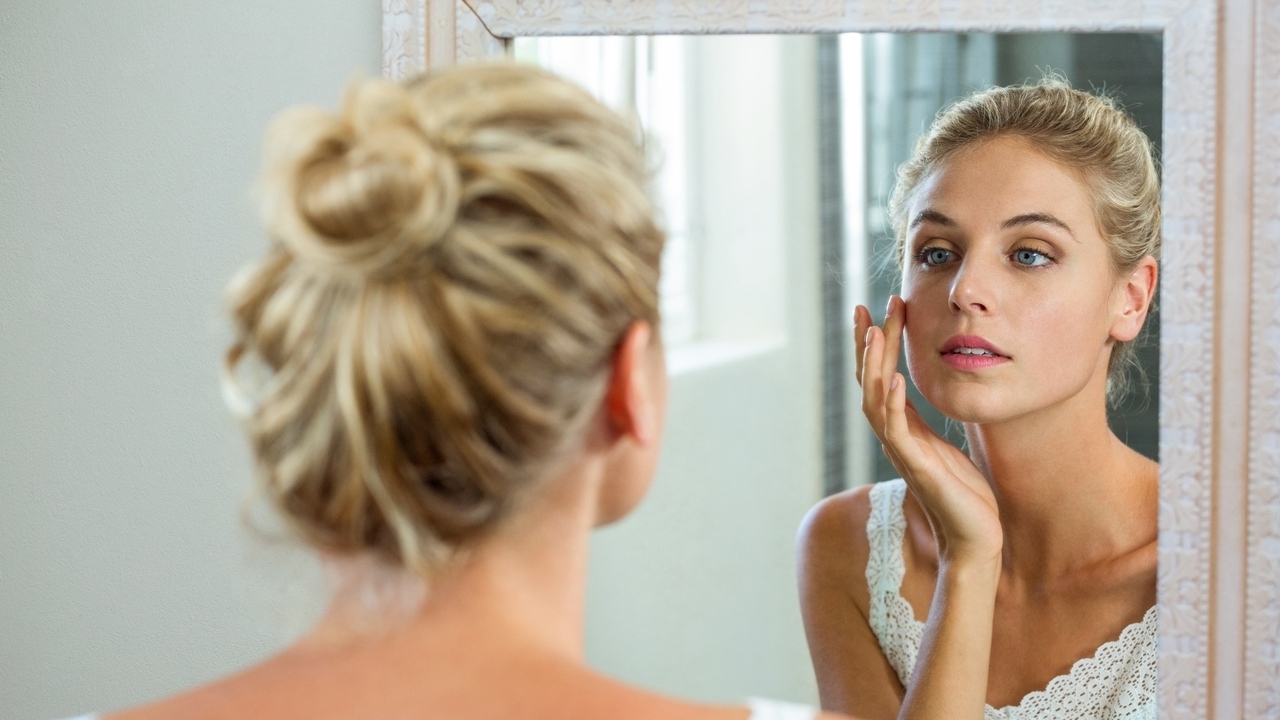 WavebreakMediaMicro/Fotolia
WavebreakMediaMicro/Fotolia
If you’ve noticed that your skin and hair look oilier during certain times of the month, you’re not alone. The same changes in hormone levels that cause your period are also to blame for monthly changes in your skin.
Even though these changes may seem random, as acne or pimples pop up then disappear, changes in your skin typically mimic the ups and downs of your hormones each month.
The Daily Mail describes five ways your hormone cycle can affect your skin and what you can do about it:
1) Days 1-7
Your cycle starts when your period arrives. Estrogen and progesterone levels are low at this time, which can make your skin feel drier.
This can make small lines or wrinkles seem more prominent. You may also flush more easily, and pimples or other spots may feel more sensitive during this time.
Help your skin by pampering it during these days. Clean gently, and use products designed to plump the skin.
2) Days 8-11
During this time, your ovaries resume the production of estrogen as your period ends. Estrogen bumps up serotonin, which is the “feel good” hormone.
Estrogen also plumps your skin and encourages collagen production. This strengthens the skin and makes you less likely to have pimples.
Your reaction to pain is generally reduced at this time, so these are the best days for hair removal or skin peels. Now is also a good time to exfoliate if your skin has dry patches.
3) Days 12-16
The middle of your cycle is when you ovulate. Many women look and feel their best now, when they are fertile. This can be a great time to schedule photos to be taken.
Increased estrogen means collagen levels are high, so skin looks plump and healthy. But it can also mean levels of melanin in the skin are higher.
This can lend a healthy glow, but may also make you more prone to sun damage. You may also start to see pimples break out in oilier spots on your skin.
4) Days 17-24
If you are not pregnant, these are the days when your hormone levels start to drop, to get ready for your period.
With progesterone more prominent as estrogen levels decline, your skin and hair produce more sebum, which is an oily substance that acts as a natural lubricant for your skin. While some women’s skin is calm during this time, excess sebum can squeeze pores shut and cause an acne breakout.
If you know you are prone to breakouts during this time of month, a skin peel may help reduce excess oils. Using a topical antibiotic cream can help reduce breakouts by killing harmful bacteria on your skin.
5) Days 25-28
Estrogen and progesterone levels drop to their monthly low. This loss of hormone causes your womb to release the lining built up in preparation for a fertilized egg. This hormone change triggers your period to start to clear out your womb so it can get ready for a new cycle next month.
During this time of month, your mood is likely to drop and you are more likely to crave junk food or sugary treats. Your skin may start to look dry and wrinkled, or lines may show more. If you retain water, your skin may also look puffy.
Treat your skin to a facial to clean your pores and hydrate dry skin.
If your skin is very prone to breakouts or acne that seem directly connected to your monthly cycle, taking birth control pills may help. Birth control pills contain a protein the helps soak up excess testosterone.(2)
Then even when your estrogen levels drop, your skin is less likely to react.
Birth control pills can also help your skin by reducing the amount of oil your skin produces. Some birth control pills are specifically approved to help treat acne.
But don’t expect the pill to be an overnight cure. It may take several months for your body to adjust to your new “normal” hormone levels.
Try these tips to reduce acne breakouts:
• Maintain a healthy weight — Being overweight can increase your testosterone levels and make breakouts more likely.
• Don’t touch your face — Your hands can transfer dirt and bacteria to your skin that can lead to more breakouts.
• Clean your phone — Acne breakouts are common along the jawline, right where your phone touches your face. Clean the surface of your phone regularly to avoid germs.
• Don’t smoke — Smoking is known to make acne worse.
If you have questions about how to take care of your skin or reduce breakouts, talk to your health care provider.
Reviewed July 1, 2016
by Michele Blacksberg RN
Edited by Jody Smith
1) 4 Way That Your Period Messes With Your Skin. Women’sHealth. Aly Walansky. Web. Retrieved June 30, 2016.
http://www.womenshealthmag.com/beauty/ways-your-period-affects-your-skin
2) How Your Period Affects Acne. WebMD. Elizabeth Shimer Bowers. Web. Retrieved June 30, 2016.
http://www.webmd.com/skin-problems-and-treatments/acne/features/period
3) How your monthly cycle plays havoc with your skin causing wrinkles, oiliness and spots. Daily Mail. Victoria Lambert. Web. Retrieved June 30, 2016.
http://www.dailymail.co.uk/femail/article-3031047/How-monthly-cycle-plays-havoc-skin-causing-wrinkles-oiliness-spots-beat-s-how.html
4) Why Your Skin and Hair Totally Suck When You’re on Your Period. TeenVogue. Krystin Arneson. Web. Retrieved June 30, 2016.
http://www.teenvogue.com/story/period-beauty






Add a Comment1 Comments
My hormones play havoc with my skin and I developed perioral dermatitis as a result of going on the contraceptive pill. It as all around my mouth and was difficult to cover with make-up. Dermatologist gave me lots of advice but in the end I gave up as nothing helped. Then I saw a review for an eczema cream with calendula and east cape manuka and having tried it for juts a few days i could see an imprvement. My skin is clear at last and I put it down to this cream.
July 11, 2016 - 9:44amThis Comment